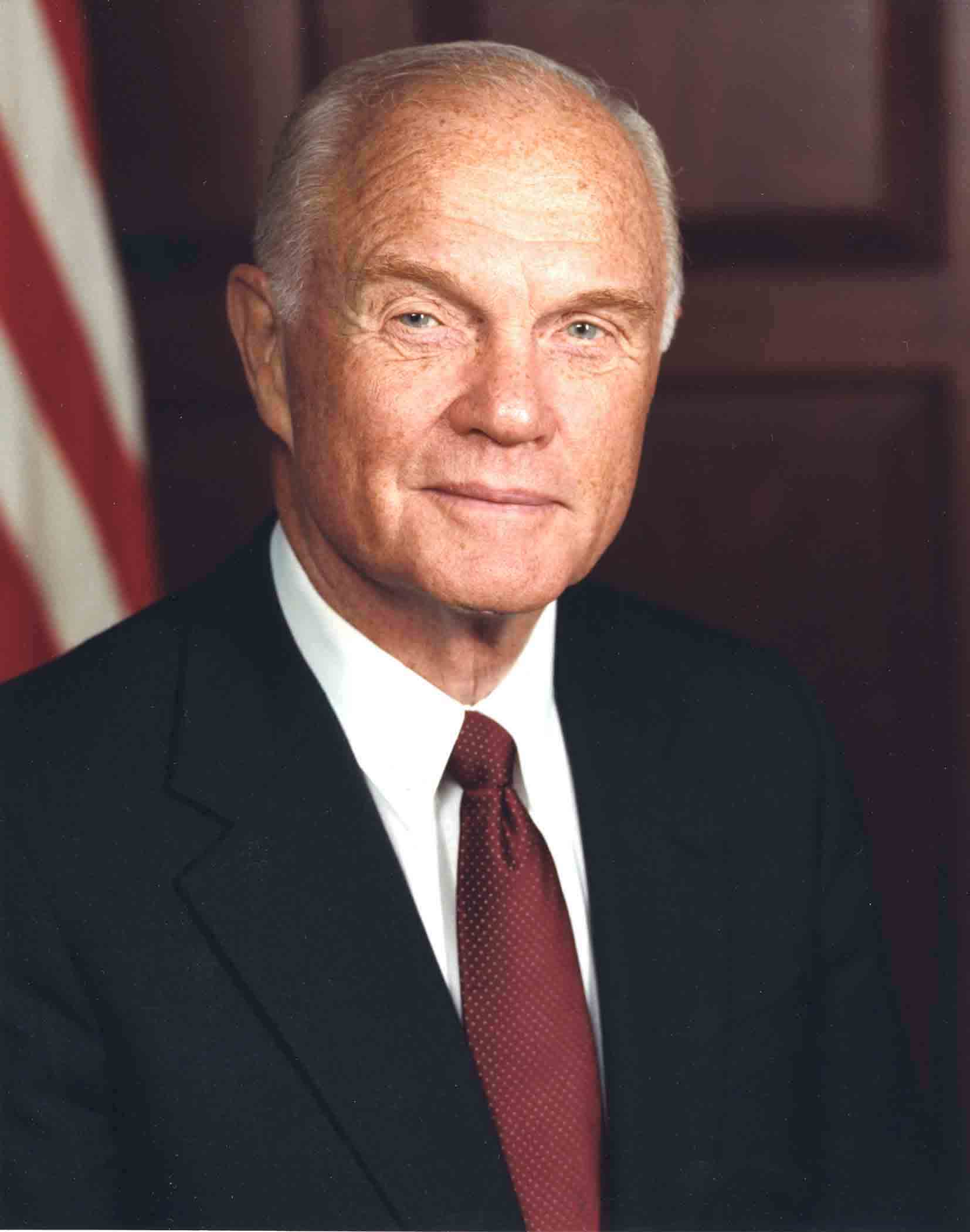Get Today in Masonic History into your Inbox. Sign up today for one of our email lists!
Need an article for your Trestleboard/Newsletter see our Use Policy
John Herschel Glenn, Jr. Passed Away

Today in Masonic History John Herschel Glenn, Jr. passed away in 2016.
John Herschel Glenn, Jr. is an American astronaut and politician.
Glenn was born in Cambridge, Ohio on July 18th, 1921. He grew up in New Concord, Ohio. He graduated from New Concord High School in 1939. He attended Muskingum College where he studied mechanical engineering. In 1941, to earn credit in a physics class, Glenn earned his private pilot's license.
In 1941, after the Japanese attack on Pearl Harbor, Glenn left college to join the military. He joined the Army Air Corps and was never called to duty. In March of 1942, he moved to the United States Navy as an aviation cadet. He was later offered the opportunity to transfer to the United States Marine Corps and took it. In 1943, after completing training, he flew 59 combat missions in the South Pacific.
During the Korean War, Glenn continued flying with the United States Marine Corps. He flew 90 combat missions, including 27 with the United States Air Force during an inter-service exchange program. Also during the Korean War he flew as the wingman of future Baseball Hall of Fame member, Ted Williams. During the war, Glenn gained the nickname "Magnet Ass" because of his odd ability to attract enemy flak. On one mission he returned to base with nearly 250 holes in his plane.
After his service in the Korean War, Glenn was assigned to the United States Naval Test Pilot School and graduated in 1954. During this time Glenn's flying time went over 9,000 hours including 3,000 in Jet Aircraft. His most notable flight was the first transcontinental supersonic flight from Naval Air Station Los Alamitos, California to Floyd Bennett Field, New York. Flight took 3 hours 23 minutes and 8.3 seconds. The flight includes 3 in-flight refueling where the plane did dip below 300mph. When Glenn flew over New Concord, Ohio, a young boy in the town ran to the Glenn household yelling "Johnny dropped a bomb! Johnny dropped a bomb!" this was due to the sonic boom heard.
In April 1959, Glenn, along with the other 6 Mercury Astronauts were introduced to the World. This was after a year long review of 508 other candidates for the program. On February 20th, 1962, Glenn became the first American to orbit the Earth aboard Friendship 7. Glenn's first words after becoming weightless on his orbit of the Earth was "Zero G and I feel fine."
In 1964, Glenn resigned from NASA and on the following day announce his candidacy for the United States Senate. He withdrew from the race after falling in a bathtub giving him a concussion and an inner ear injury. Glenn did not become a member of the United States Senate until the late 1970's. His Senate career lasted until 1999.
Glenn returned to space in 1998 at the age of 77. He became the oldest person to go into space. In 2012, he participated in the ceremonial transfer of the Space Shuttle Discovery from NASA to the Smithsonian. At the ceremony, Glenn criticized the "unfortunate" decision to end the Space Shuttle Program. He expressed his opinion grounding the shuttles delayed research.
Glenn passed away on December 8th, 2016.
Glenn was a member of Concord Lodge No. 688 in New Concord, Ohio.
This article provided by Brother Eric C. Steele.

